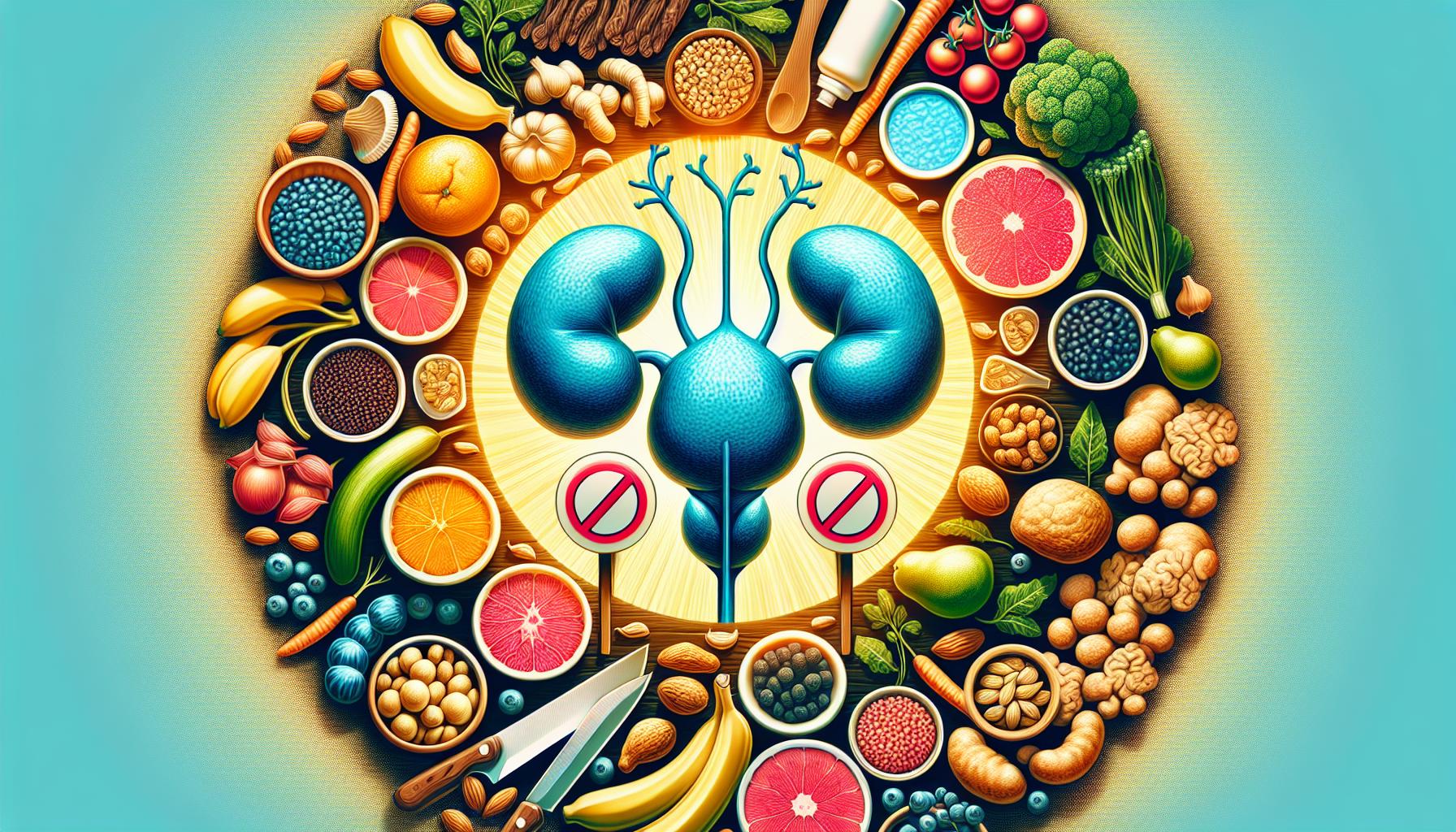Prostate Health is Paramount: What Foods Should You Sidestep?
When it comes to maintaining optimal health, the food on our plates plays a pivotal role. This tenet holds particularly true for prostate health. Paying keen attention to what we consume can reduce the risk of certain issues such as prostate cancer and Benign Prostatic Hyperplasia (BPH). Several food items, while tantalizing to the taste buds, are not friendly to the prostate. Let’s delve into what food to avoid—all with an aim to safeguard the status of your prostate.
Avoiding the Prostate’s Foe: Red & Processed Meats
In the realm of prostate health, red and processed meats are at odds with one another. Laden with high levels of saturated fats and carcinogens, these can potentially increase one’s risk of developing prostate ailments. The excessive iron found in red meat can catalyze the formation of harmful cancer-causing compounds in the body. So, tucking into that tasty steak or sausage may not be in your prostate’s best interest.
The Processed Meat Problem
The issue with processed meats isn’t solely limited to their high-fat content. Rather, the underlying peril lies in the preservatives used, notably nitrates and nitrites. These substances enhance shelf life and imbue the meat with a friendly, familiar pink hue. However, when cooked, they can convert into harmful substances called nitrosamines, known to damage DNA and potentially ignite cancerous growth.
Fitting inside the Foe’s Frame: Dairy & Calcium
In a world where dairy products are hailed as powerhouses of essential nutrients, it may seem counterintuitive to consider them foes. Yet studies hint at direct links between high dairy or calcium intake and an increased risk of prostate cancer.
Cracking the Calcium Conundrum
While calcium is the cornerstone of bone health, there’s such a thing as too much of a good thing. Excessive calcium can slow down the production of the active form of Vitamin D, which has cancer-preventing properties. A proverbial case of imbalance, the protective effect of Vitamin D gets edged out by an overdose of calcium.
Advanced Glycation End-products: The Hidden Hazard
Did you know foods cooked at high temperatures, especially by grilling, frying or broiling, can affect your prostate health? These cooking methods trigger the formation of Advanced Glycation End-products (AGEs), harmful compounds that cause inflammation and promote cancer growth.
The AGEs Angle
While a flame-grilled steak or fries straight from the fryer might make your mouth water, the AGEs they produce can inflame your prostate. By opting for slow-cooking methods or a diet rich in raw or lightly cooked foods, you significantly reduce your exposure to these menace-mongers.
Punching Above Their Weight: Sugary Foods and Drinks
Admittedly, a world without the sweet allure of sugar sounds bleak. However, high sugar intake, especially in liquid form, has been linked with a higher risk of developing prostate cancer. The culprits? Sodas, sweetened teas, and fruit juices.
The Sugar-Belly-Cancer Triangle
Besides direct harm, excessive sugar intake leads to weight gain. This extra weight, especially around the belly, can interfere with hormone regulation, act as a precursor to Type 2 Diabetes and, you guessed it right!, potentially lead to prostate cancer.
Conclusion
Maintaining prostate health is an ensemble act involving regular screenings, exercise, and a diet tailored to going easy on the prostate. Avoid red and processed meats, limit dairy and calcium intake, be wary of deliciously deceptive AGEs and exceptionally exorbitant amounts of sugar. Here’s to your health, especially your prostate’s!
Frequently Asked Questions
1. Is coffee bad for your prostate?
On the contrary, research suggests that regular, moderate amounts of coffee could potentially reduce the risk of developing lethal prostate cancer.
2. Does Vitamin D help protect the prostate?
Yes, Vitamin D can help protect against prostate cancer. Its active form has anti-cancer properties, a reason why maintaining a balanced intake of calcium and Vitamin D is crucial.
3. Are tomatoes good for the prostate?
Yes, tomatoes are rich in a substance called lycopene, which has been associated with prostate health. Cooking tomatoes may help increase lycopene absorption.
4. Is alcohol bad for your prostate?
Excessive alcohol consumption can increase the risk of many health issues, including prostate problems. Limiting alcohol intake to moderate levels is a good practice for overall and prostate health.
5. Are eggs bad for your prostate?
The connection between eggs and prostate health is still being evaluated. However, it’s a good idea to limit intake of saturated fats, found in eggs, for overall health.


